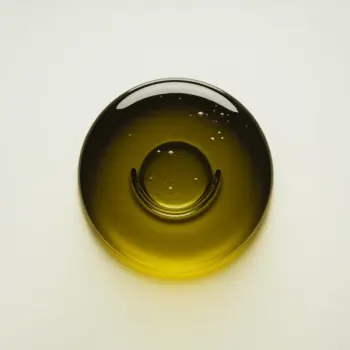Olive Oil vs Vegan Butter are two popular cooking fats with distinct characteristics, used in various culinary applications to enhance flavor and texture in dishes while offering different health benefits.

Olive oil is a natural oil extracted from olives, the fruit of the olive tree. It’s a staple in Mediterranean cuisine and is renowned for its health benefits, versatility in cooking, and distinct taste that ranges from fruity to peppery.

Vegan butter is a plant-based alternative to traditional dairy butter, often made from a blend of oils like coconut, palm, canola, and olive, along with water and emulsifiers. It is designed to mimic the taste and texture of dairy butter without any animal-derived ingredients.
Olive oil is a monounsaturated fat that is liquid at room temperature and has a strong flavor influenced by olive varieties. Vegan butter, on the other hand, is a mixture of plant-based oils that can be solid or semi-solid at room temperature, often engineered to replicate the creamy flavor and texture of dairy butter. Olive oil is known for its health benefits, while vegan butter's nutritional profile can vary widely depending on the ingredients used.

Your ultimate Recipe Box, Meal Planner, and Cooking Class all in one
Olive oil can be used in baking recipes like cakes, cookies, and bread for a lighter texture and a nuanced flavor. It's particularly great in Mediterranean-style baked goods like olive oil cake. Vegan butter is ideal for creating flaky pastries, buttery cookies, and rich cakes. It provides the creamy mouthfeel and richness that closely resembles traditional butter-based desserts.
Olive oil shines in sautéing, roasting, and grilling, imparting a distinct flavor to vegetables, proteins, and sauces. It is also a staple for dressings and finishing dishes. Vegan butter is perfect for pan-frying, sautéing, and creating rich, creamy sauces. It can also be used to add a buttery finish to cooked vegetables and grains.
As a spread, olive oil can be infused with herbs and spices for a flavorful bread dip or drizzled on toast for a healthier topping. Vegan butter can be spread on toast, bagels, and muffins for a creamy texture and rich taste that closely mimics traditional butter.
Olive oil is high in monounsaturated fats and antioxidants, making it a heart-healthy choice. Vegan butter's nutritional value can vary, but it’s usually free of cholesterol and lower in saturated fats than dairy butter.
| Nutrient | Olive Oil ( per Tablespoon ) | Vegan Butter ( per Tablespoon ) |
|---|---|---|
| Fat | 14g | 11g |
| Sodium | 0mg | 100mg |
| Calcium | 0mg | 0mg |
| Protein | 0g | 0g |
| Calories | 120 | 100 |
| Carbohydrates | 0g | 0g |
Olive oil is generally considered healthier due to its high content of monounsaturated fats and antioxidants. However, the healthiness of vegan butter can depend on the specific product and its ingredients.
Yes, but the substitution may alter the flavor and texture of the dish, and the ratio is not always 1:1. For baking, a good starting point is to use 3 parts olive oil to 4 parts vegan butter.
Many vegan butter products are designed to closely mimic the taste and texture of real butter, but individual experiences may vary depending on the brand and ingredients.
Yes, olive oil can be used for frying, but it has a lower smoke point than some vegan butters, so it's best used for low to medium-heat cooking.
Recipes that rely heavily on the creaming process, such as certain cookies and frostings, may not turn out as expected with olive oil due to its liquid state at room temperature.